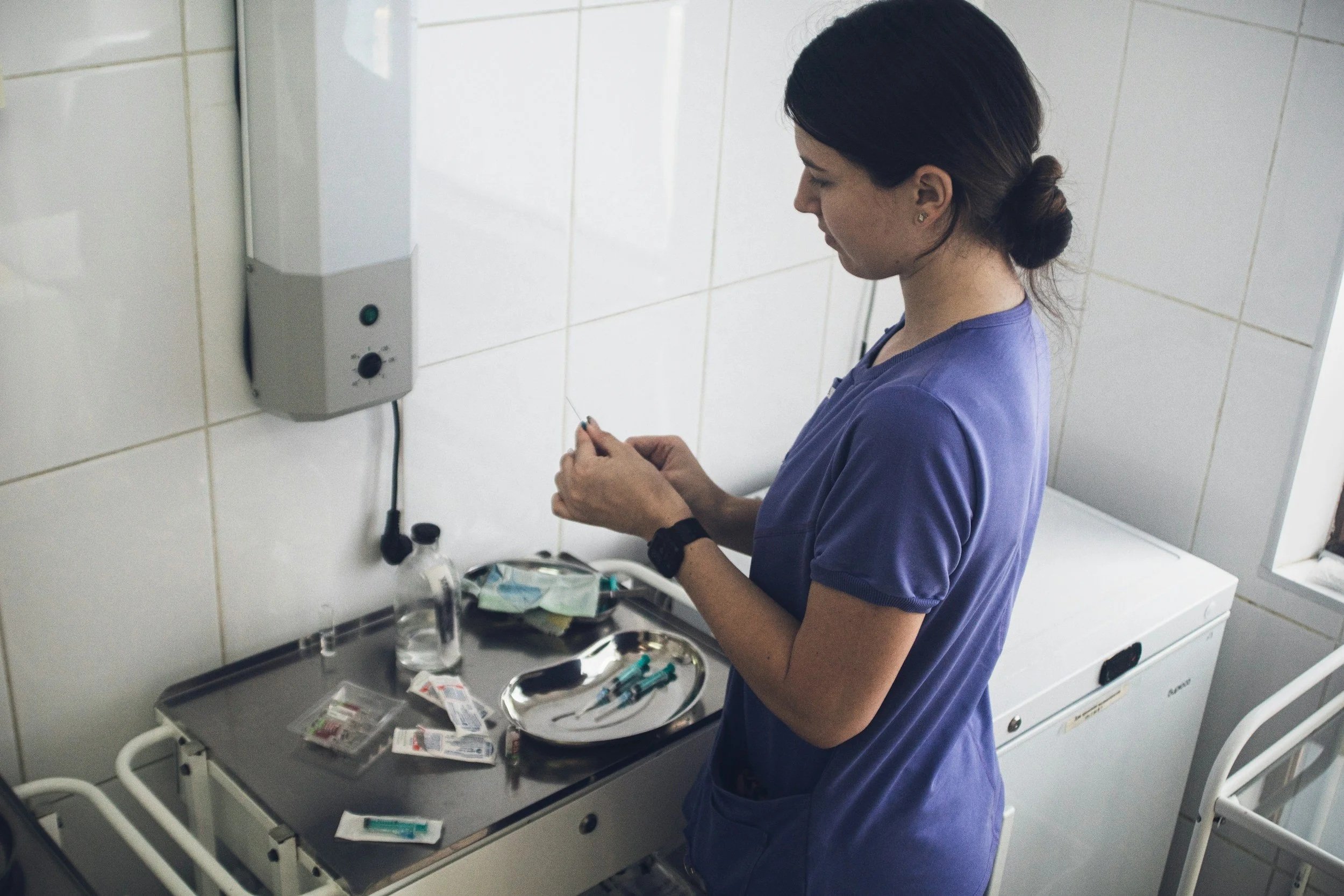The word on everyone’s lips… Ozempic! Ozempic and other GLP-1 like receptor agonists — like semaglutide (Wegovy, Rybelsus), tirzepatide (Mounjaro), lixisenatide (Adlyxin), liraglutide (Saxenda, Victoza), dulaglutide (Trulicity), and exenatide (Bydureon) — are medications that aid in the management of type 2 diabetes, and in some cases, obesity. They have recently garnered attention for their potential role in positively and negatively impacting fertility in women and men, however, let’s dive into what we currently know and the specific considerations when freezing your eggs.
Impacts on Preservation Cycles
While there is no current evidence linking the use of these medications with negative outcomes on egg freezing stimulation or egg quality, ongoing studies show an increased chance of complications related to the anesthesia associated with egg retrievals.
Before undergoing anesthesia, it is generally recommended to stop taking Ozempic. This is because GLP-1 receptor agonists like Ozempic can affect gastric emptying and delay digestion. Anesthesia affects gastrointestinal motility, often requiring patients to fast at least 12 hours prior to a procedure to empty the stomach. If a patient is on Ozempic at the time of anesthesia, this can lead to complications such as delayed gastric emptying, gastrointestinal discomfort, and potential aspiration.
For the safety of the egg retrieval procedure, healthcare providers often advise patients to discontinue Ozempic and other GLP-1 like receptor agonists for 2 dosing intervals (~15 days) prior to undergoing anesthesia to reduce the risk of these complications. Patients may also be asked to undergo a specific fasting protocol or liquid diet in the 24 hours leading up to their egg retrieval.
The recommended timeframe in which to discontinue Ozempic before starting the egg retrieval process may also be impacted based on a patient’s personal history and whether she has additional risk factors for aspiration. The decision to undergo egg freezing while taking Ozempic should be made in consultation with your healthcare provider so they may provide appropriate guidance and recommendations based on your clinical history.

Valerie Shafran, MSN, FNP-C is an empathetic board certified nurse practitioner who is passionate about educating women regarding their reproductive health and their future options surrounding fertility. Valerie has been with Extend Fertility for over 4 years and has an extensive background in women’s health. She has worked within the postpartum and OBGYN settings and has dedicated her career to providing exceptional and personalized care to each of her patients. She completed a bachelor’s degree in nursing from George Washington University in 2017 and received her Masters Degree as a Family Nurse Practitioner from SUNY Downstate Medical Center in 2021.
Learn more about Extend Fertility’s egg freezing practice on Freeze.
Answered by Dr. Roy Handelsman from HRC Fertility. Understand how ovarian cysts and ovarian surgery may impact the egg freezing process.
Answered by Dr. Rashmi Kudesia from CCRM Fertility Houston. Here’s a checklist for before, during, and after your egg freezing consultation, including 11 questions you should ask the doctor.
Answered by Valerie Shafran, MSN, FNP-C from Extend Fertility. Discover why fertility experts urge women to stop taking GLP-1 agonists before an egg freezing cycle.
Answered by Dr. Nidhee Sachdev from South Coast Fertility Specialists. Explore what AMH tells us about a woman’s ovarian reserve or how many eggs she has left.
Answered by Dr. Hade from Generation Next Fertility. Understand how egg freezing does not cause long-term weight gain yet there is a chance of transient bloating.
Answered by Rijon Charne, JD from Sunray Fertility. Explore what a reproductive estate plan entails and the situations where having one can make a big difference.
Answered by Rijon Charne, JD from Sunray Fertility. Learn more about the importance of clinic disposition forms, including what they do and don’t cover.
Answered by Rijon Charne, JD from Sunray Fertility. Discover the legal nuances that can shape your options when freezing eggs or embryos.
Answered by Dr. Joshua Klein from Extend Fertility. Learn how birth control relates to egg freezing and if you will need to stop your hormonal birth control before starting the procedure.
Answered by Dr. Jesse Hade from Generation Next Fertility. Discover the important factors that affect chances of egg freezing success in your late thirties.
Answered by Sidonia Buchtova, PA-C, C-RHI from Refresh Psychiatry. Understand if you can stay on an SSRI or SNRI when freezing your eggs.
Answered by Sidonia Buchtova, PA-C, C-RHI from Refresh Psychiatry. Discover tips to help support your mental well-being during preparation, throughout the cycle, and after your egg retrieval, especially if you have a history of anxiety.
Answered by Dr. Katharina Spies from Vida Fertility. Learn about who should consider supplements before and during fertility preservation, and how supplements could support your egg freezing cycle.
Answered by Dr. Serin Seckin from Generation Next Fertility. Understand the key differences to help you make an informed decision that aligns with your personal and reproductive goals.
Answered by Dr. Ido Feferkorn from the Reproductive Medicine Group. Learn how Polycystic Ovarian Syndrome (PCOS) may affect the egg freezing process and outcomes of fertility preservation.
Answered by Dr. Meera Shah from Nova IVF. Understand the potential risks of egg freezing to help you evaluate if it is right for you.
Answered by Dr. Hade from Generation Next Fertility. Learn from start to finish the entire process of what happens on the final day of an egg freezing cycle.
Answered by Dr. Sahar M. Stephens from Northern California Fertility Medical Center. Understand the probability of pregnancy based on the number of eggs frozen and the age at which you freeze.
Answered by Dr. Alison Peck from HRC Fertility. Discover which medications are commonly used for ovarian stimulation during an egg freezing cycle.
Answered by Dr. Kathryn Snow from Piedmont Reproductive Endocrinology Group (PREG). Understand the side effects that you may experience when freezing your eggs.
Answered by Lia Schiller, MSN, AGNP-BC from Extend Fertility. Learn why IUDs can stay in place throughout the egg freezing process.
Answered by Dr. Woo from HRC Fertility. Learn how some medications need to be stopped for an egg freezing cycle while some medications can be continued.
Answered by Dr. Dan Nayot from The Fertility Partners. Learn how artificial intelligence is providing women with more information than ever before about their eggs.
Answered by Dr. Joshua Klein from Extend Fertility. Egg freezing doesn’t impact your chance of getting pregnant naturally, because egg freezing makes use of eggs that would otherwise have been lost.
Answered by Dr. Dan Nayot from The Fertility Partners. Understand the distinction between egg quantity and quality, and explore how AI is transforming egg quality analysis.
Answered by Dr. David E. Tourgeman from HRC Fertility. Understand what options exist for what to do with your frozen eggs if you decide not to use them for IVF.
Answered by Dr. Armando Hernandez-Rey from Conceptions Florida. Learn about minimal stimulation egg freezing cycles and how they can decrease the risk of ovarian hyperstimulation syndrome.
Answered by Dr. Ido Feferkorn from the Reproductive Medicine Group. Find out how egg freezing medications work and how protocols can be adjusted if you can’t take estrogen.
Answered by Dr. Ido Feferkorn from Reproductive Medicine Group. Learn how egg freezing fits into the menstrual cycle and how timing can be customized.
Answered by Dr. Elena Santiago from Vida Fertility. Understand the ins and outs of egg freezing in Spain as a non-resident, including timing, costs, and more.






























